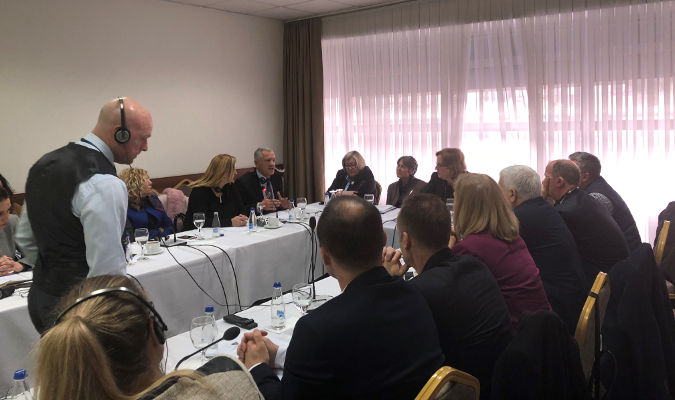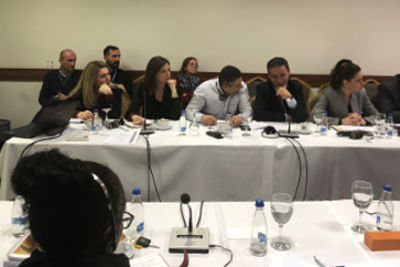Criminal justice collaboration a must for effective sexual violence investigations
A UN Women and European Union Rule of Law Mission in Kosovo (EULEX) supported working group meeting of experts in Kosovo looks at ways to enhance the investigation and prosecution of sexual and gender-based violence cases.Date:

Respect for the victims, closer collaboration between investigative institutions, and careful use of forensic evidence are necessary, if Kosovo[1] institutions are to be more effective in investigating sexual and gender-based violence cases, said experts participating at the meeting organized on 1st of March in Pristina.
Nearly 20 senior representatives from the Kosovo Police, the Chief State Prosecutors Office and the Institute of Forensic Medicine and Kosovo Forensic Agency, took part in an initial working group meeting to improve the handling of sexual and gender-based violence cases.
Participating institutions committed to strengthening the value of forensic evidence. They agreed that doing so builds the victims’ confidence, increases their access to justice, and enhances the credibility of the criminal justice system and institutions.
The respect given to a victim is crucial in investigating such highly sensitive cases, according to Sevdije Morina, Deputy Chief State Prosecutor, and meeting chair.

Having monitored sexual and gender-based violence investigations and criminal justice processes in Kosovo for the past five years, EULEX identified the need for increased partnership between involved institutions. EULEX joined forces with UN Women Office in Kosovo to support inter-institutional working group meetings to improve collaboration in such criminal investigations.
“Victims of such offences face many challenges within the criminal justice process, and any enhanced capacity that supports and corroborates the victims account and assists in establishing the facts of an investigation are welcomed,” said Mark Dixon, Head of the EULEX Advisory Unit on Police and Border Matters. Building Kosovo institutions’ joint capacities to work together, will increase the effectiveness of criminal justice institutions to gather and analyse forensic evidence, he noted.
Collaboration is essential for justice, said Flora Macula, Head of Office for UN Women in Kosovo: “To make the entire investigation as painless as possible for the victim, institutions and agencies need to increase their collaboration and coordination.”
Ms. Macula calls upon all the institutions to carefully review the findings of the investigations in order not to neglect the evidence suggesting an experience of violence prior to the death, in cases of homicide and suicide.
[1]All references to Kosovo on this website shall be understood to be in full compliance with UN Security Council Resolution 1244 (1999).